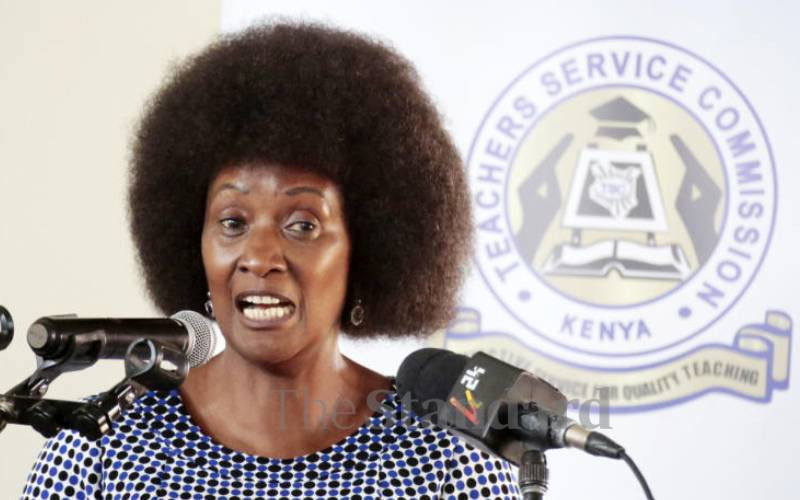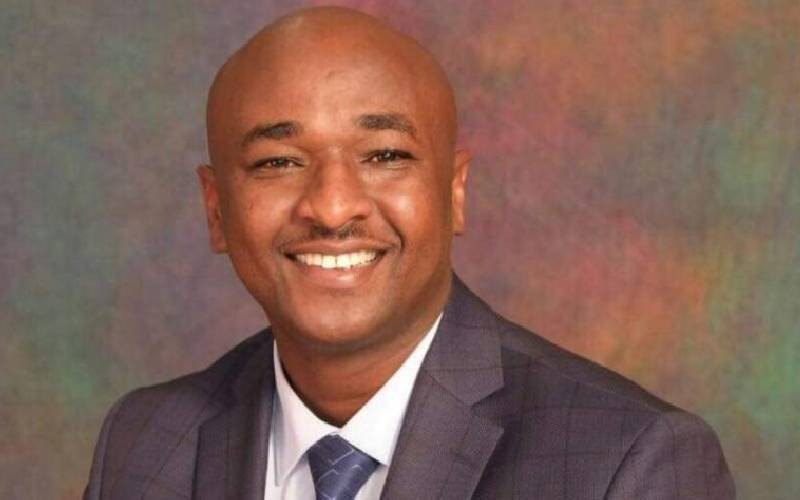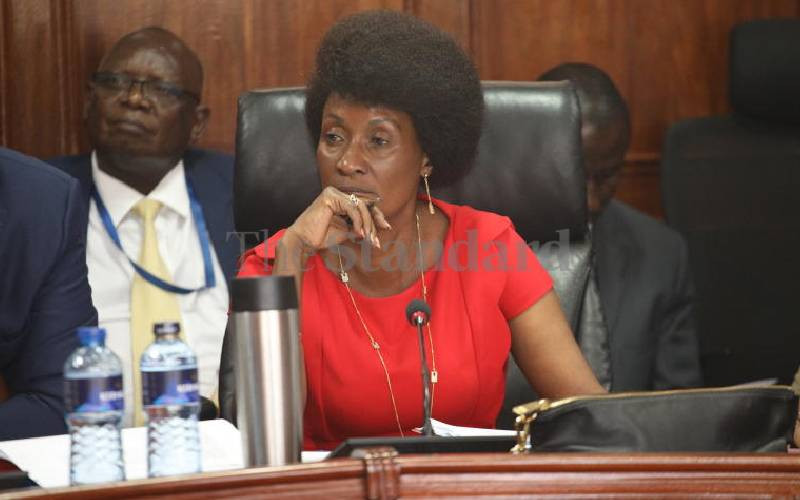BY MICHAEL WESONGA
When she found out she was infected with HIV, she thought her world was coming to an end. She cried, whined and hated herself.
But 20 years later, Rosemary Lempaka is a fount of confidence. She radiates hope wherever she goes and gives her two children a reason to thank God every morning.
As principal at Enkara Nairowa Girls Secondary School in Narok, Ms Lempaka only learnt of her positive status following the death of her husband in 1992.
What made her life difficult soon after finding out was the decision she made to disclose her status to anyone who inquired. This, she says, was brought about by shock and disbelief.
Sabotage
She was depressed for some years but got over it and began life afresh, inspiring many along the way.
“The information I have acquired on the virus so far is timely, but I still wish it would have come a little earlier,” she says.
Ms Lempaka says she was due for a ‘promotion’ when her husband died but the informal disclosure sabotaged the expected upward mobility to Ole Tipis Girls Secondary School, a school considered superior to Enkara Nairowa.
On enquiring about her anticipated promotion she was told she could not hold such a position with her status. She tried arbitration through the Narok Heads Association but it was in vain.
“I wished I could undo the disclosure but it was too late,” she adds.
Ms Lempaka, then the Music chairperson in the district was very strong but ignorant of her plight, she had never thought of taking medication at the time.
“It was the constant reminder of coming death that awakened stress and got me into a state of shock. I felt pain, devalued and frustrated,” she recalls.
Her children too got shocked and confused when they got wind of her status.
The children learnt about her status when a visiting friend inquired from her why she looked troubled.
Confused, Ms Lempaka answered “Nina ukimwi” (I have Aids) in the presence of her daughter and niece.
“My daughter and her cousin left the room crying. I was surprised, I did not know what I had just said, I was very confused,” she says.
Thirteen years later, Lempaka began Anti-Retro Viral Therapy (ARV). This and the embrace of friends and relatives has kept her going ever since.
Last year, Ms Lempaka was elected the Chairperson of Kenya Network of Positive Teachers (Kenepote). She is the vice chairperson and founder member of the Kenya Red Cross Narok Sub-branch, an active member of Osiligi Lonkera Okishen and the Maasai Christian Women Development Forum, which are all community-based organisations.
Peace corps
Ms Lempaka also engages in HIV/Aids awareness campaigns in churches, schools and colleges. She was part of the team that formulated HIV/Aids policies for the Teachers Service Commission and Peace Corps in Oloitotok. She was recently appointed a director of Comfort the Child in Mai Mahiu.
Ms Lempaka is also part of a team of 17 tutors drawn from Teachers Training Colleges (TTCs) countrywide who were recently trained as trainers of trainers (Tots) in stigma reduction skills in colleges by the Teacher Education and Professional Development Programme (TEPD), an initiative of the Ministry of Education sponsored by USAid.
As a Tot, Lempaka monitors stigma reduction campaigns in TTCs, behaviour change programmes for students, integration and infusion of HIV/Aids and disseminating information on trainees, demystifying myths among the trainers and trainees and changing their attitude towards HIV/Aids for a stigma-free society and reduced infections.
Zero infections
“We aim to attain zero infections, zero discrimination, be factual and remove all misconceptions surrounding the virus while encouraging status disclosure,” she says.
Ms Lempaka says stigma fuels the spread of the virus since people fear disclosure and end up spreading it silently.
“They infect and get re-infected thus die earlier, making it hard to fight the disease,” she adds.
She says people can live longer and be productive in society on ARVs, disclosure and a non-stigmatising society.
“With love, acceptance and support one can lead a full, long life,” she asserts.
 The Standard Group Plc is a
multi-media organization with investments in media platforms spanning newspaper
print operations, television, radio broadcasting, digital and online services. The
Standard Group is recognized as a leading multi-media house in Kenya with a key
influence in matters of national and international interest.
The Standard Group Plc is a
multi-media organization with investments in media platforms spanning newspaper
print operations, television, radio broadcasting, digital and online services. The
Standard Group is recognized as a leading multi-media house in Kenya with a key
influence in matters of national and international interest.
 The Standard Group Plc is a
multi-media organization with investments in media platforms spanning newspaper
print operations, television, radio broadcasting, digital and online services. The
Standard Group is recognized as a leading multi-media house in Kenya with a key
influence in matters of national and international interest.
The Standard Group Plc is a
multi-media organization with investments in media platforms spanning newspaper
print operations, television, radio broadcasting, digital and online services. The
Standard Group is recognized as a leading multi-media house in Kenya with a key
influence in matters of national and international interest.









